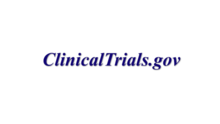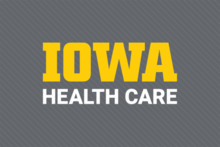Breadcrumb
- Home
- Get Help
- Newsletters
- December 2023 IRB Connection Newsletter
December 2023 IRB Connection Newsletter
Holiday Wishes
OVPR Research Recruitment Survey
Transparency In Clinical Trials and the Role of FDA Oversight
Human Subjects Research in the UIHC: Not Just IRB Compliance
HawkIRB User Interface
Recent IRB Presentation Recordings Available
In the News
Holiday Wishes

Happy Holidays from the Human Subjects Office! We wish you much health and happiness this holiday season! We look forward to working with you in 2024!
OVPR Research Recruitment Survey
Individuals who complete the survey are invited to email a screenshot of the completion screen to vpr-office@uiowa.edu. Twenty individuals will be randomly selected to receive an IOWA Research coffee mug or IOWA Research tumbler.
Transparency In Clinical Trials and The Role of FDA Oversight
By Fozia Ghafoor, MBBS

Advancements in the field of medicine rely on scientific investigation. Clinical trials are the most efficient approach to evaluating the advantages and potential risks of therapies. The establishment of ClinicalTrials.gov in February 2000 represented a significant advancement as it offered the public a comprehensive database of clinical trials. The U.S. Food and Drug Administration closely monitors compliance with the ClinicalTrials.gov registration and results information submission requirements. This oversight is an integral component of the overarching objective to safeguard public health. The transparency of clinical trial information, particularly through platforms like ClinicalTrials.gov, is crucial for the progress of scientific research. The FDA takes regulatory action when it identifies noncompliance with the mandatory registration and results information submission requirements for ClinicalTrials.gov.
Although ClinicalTrials.gov has half a million registered clinical studies, only 15% are applicable clinical trials requiring registration and results reporting on ClinicalTrials.gov. The FDA commissioner recently issued a statement about the Importance of Clinical Trial Transparency and FDA Oversight. The statement emphasizes the FDA's continued involvement in overseeing clinical trials in accordance with the regulations of ClinicalTrials.gov and provides information about actions taken by the FDA to address records that do not comply with the regulations.
The FDA notifies noncompliant parties by sending pre-notices of noncompliance in an effort to promote voluntary compliance. The impact of FDA pre-notifications and notices of noncompliance is substantial. Pre-notices may be issued for potential violations, such as:
- Failing to register an applicable clinical trial
- Failing to submit the required clinical trial information for an applicable clinical trial
- Submitting false or misleading clinical trial information
After receiving a pre-notice, if possible violations are not addressed, the FDA may take additional regulatory action, which might include a Notice of Noncompliance and/or civil money penalties. As of right now, responsible parties have successfully addressed any possible noncompliance in more than 90% of the 120 pre-notices sent by the FDA. No additional FDA regulatory action was necessary for any of the five notices of noncompliance.
The FDA sends a pre-notice, or notice of noncompliance, to the responsible parties only. UI investigators who receive an FDA pre-notice or notice of noncompliance should immediately notify the UI PRS Administrator (ct-gov@uiowa.edu(link sends e-mail) or (319) 335-6564).Informed Consent Tips
Human Subjects Research in the UIHC: Not Just IRB Compliance
By Catherine Fruehling, MBA
This article provides an overview of a November 2023 presentation about the overlap between the Human Subjects Office (HSO)/Institutional Review Board (IRB) policies and UI Health Care (UIHC) policies impacting human subjects research. A recording of this presentation is available in the Additional Topics section of the IRB ICON Course for Researchers.
Below is a brief outline of the policies to consider when conducting human subjects research in the UIHC. For more detailed information, please view the slides and recording of the presentation.
UI Operations Policy
Use of Social Security Numbers (SSN): Use of social security numbers for research purposes should be minimized and stored securely. Subjects must be informed of the use of their SSN, whether providing them is optional or mandatory, and how and when they will be discarded.
UI Operations/UI Health Care Policy Overlap
Data Security/Technology Reviews: Research records are considered institutional data and must be securely stored, especially when data contains HIPAA identifiers. Technology reviews are required for the use of any software, hardware, cloud, or web-based service in conjunction with research to ensure privacy and confidentiality.
Photos/video recordings: Confidentiality protections must be in place for research subjects who are also UI Health Care patients. When used for research purposes, consent is obtained as part of the informed consent process. For non-research purposes, separate consent is required. For non-UI Health Care research, the HSO can provide an approved UI consent template.
Medical interventions for research in non-UI Health Care space: Several considerations must be addressed, including subject safety, level of risk, involvement of a physician, plan for addressing a medical emergency, and proximity to UI Health Care Emergency Department.
UI Health Care Policies
Documentation of research participation in Epic: Required when it occurs in a UI Health Care facility and:
- Involves procedures, tests, examinations, hospitalizations,
- Use of Pathology services,
- Use of clinic facilities or clinical equipment, or any patient care services,
- Any use of investigational medication, study medication, investigational device, or biologic, or
- Conducted in the Clinical Research Unit.
Documentation of research participation in Low-risk Database: If the study does not meet the requirements for Epic, basic information may need to be recorded in the Low-Risk Research Database in REDCap. Use when the study involves a physical interaction in UIHC space but does not have billable charges. The Low-Risk Database has required fields for the subject’s full name and date of birth.
Use of the Clinical Research Unit (CRU) & HIPAA Privacy Rules: Use of the CRU for research visits requires a partial HIPAA waiver, as Protected Health Information (PHI) is accessed prior to informed consent when scheduling the appointment(s). Request this waiver in Section VII.D.1.a (use of PHI) and follow up questions about the source and specific information accessed in the medical record.
Encrypt emails that contain PHI: The HIPAA Privacy Rules require messages sent to an external party (a non UI email address) to be secured (encrypted) in transit when they contain PHI.
Use of Care Everywhere: Care Everywhere cannot be used to initially identify or recruit research participants. Researchers may use the documentation in Care Everywhere that is already part of the patient record but cannot retrieve any additional or new information through Care Everywhere.
Vendors in UI Health Care: Vendors are required to register via SEC3URE web-based community prior to engaging in activities and must follow all hospital policies and procedures. Registration and daily badges are required for all vendors.
Short-term UI Health Care Visitors: Short-term visitors must have a specific purpose and a business association with a program or department and must be overseen by a specific faculty or professional staff member. They must have an approved identification badge, provided by the department, that clearly identifies the observer as a VISITOR. Short-term visitors must sign a confidentiality statement and a health screening form and must not wear hospital/lab coats.
Staff solicitation and distribution of solicited materials: Solicitation materials may only be distributed/displayed in designated areas at designated times. This includes approaching UIHC staff to participate in research.
Researchers need to be aware of both HSO/IRB and UIHC policies affecting human subjects research to be compliant with institutional policies. Please contact the HSO at (319) 335-6564 or irb@uiowa.edu(link sends e-mail) with any questions. For questions related to UI Health Care policies, please contact the UIHC Compliance Office at compliance@healthcare.uiowa.edu(link sends e-mail).(link sends e-mail)
HawkIRB User Interface
You may have noticed that the menu at the top of your HawkIRB inbox now looks different and includes some added features. You can access the announcement (User Interface Navigation) and view a very brief tutorial of the changes in the IRB ICON Course for Researchers – under “IRB Efficiency Initiative Updates.”
Recent IRB Presentation Recordings Available
By Rachel Kinker, MPA
The following recordings are now available in the IRB ICON Course for Researchers:
Human Subjects Research at UI Health Care, ICTS Clinical Lecture Series (11/2/23) - Topics

covered include:


